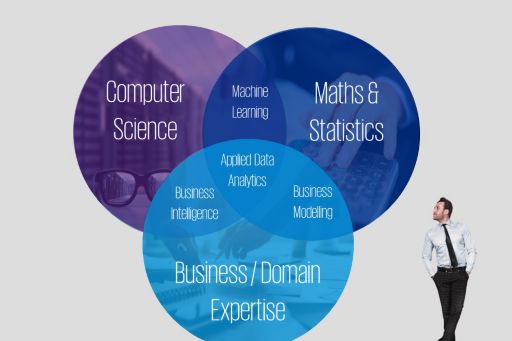Data & Analytics: Make vs Buy
Data & Analytics: Make vs Buy
Business leaders must contemplate how to steer their organisations through a wave of data. KPMG in Malta has developed service-lines to help.
The capital cost of data storage has decreased 75% over the past decade, with a gigabyte of storage now costing less than $0.03. Lower data storage costs, increased device connectivity, and ubiquitous implementation of digital information systems to support business processes have led organisations to retain larger amounts, and more diverse forms of data about their business. The ability to tap into the insights that this data can offer is fast becoming a competitive necessity in businesses of all sizes.
The development of competencies in statistics, computer science, as well as business and domain expertise are all required in order to organise large datasets, identify toolsets, and generate meaningful business findings within an organisation.
Business leaders must seriously contemplate how to steer their organisations through a wave of data: What skill gaps do you have in your organisation? How quickly and cost-effectively can these gaps be filled through training or new positions? Can you sustain the aspirations of your data analysts through investment in tools and organisational structures?
As organisations navigate this topic, a recurring theme emerges.
The Issue
The economics of accessing and nurturing talent with the required skillset is sometimes difficult to justify for organisations, particularly for small and medium enterprises (SMEs).
With labour market shortages driving up wages, and an ever-changing technology landscape requiring constant re-investment in training and systems, the returns are nullified. This leaves organisations having to adopt a ‘do what you can’ mindset, where they settle for substandard, inefficient analytics solutions.
A Viable Formula
All analytical business interventions involve five steps:
- Identification of the Problem. These may include information deficits during decision making, recurring operational issues, etc.
- Data Gathering and Cleaning. Involving the extraction of data needed and transformation into formats conducive with analysis.
- Analysis to turn the data into meaningful insights.
- Determination of Solution/s based on insights.
- Implementation of solutions.
The issue associated with the analysis of data is linked to steps 2 and 3, since it is here that the data is captured, organised, and transformed. Competitivity is however primarily driven by the organisation’s ability to optimise execution of steps 1, 4, and 5.
Contracting an external organisation, with the appropriate capabilities to securely carry out Data Gathering and Cleaning as well as Analysis work resolves the issue. This is achieved while safeguarding your ability to autonomously drive your business based on your shared mission and internal expertise.
KPMG in Malta has recognised this shared opportunity, bringing together people with the necessary expertise to deliver a formidable portfolio of technologies to clients requiring operational analytics support.
Exploring Other Models
In the midst of this data revolution, conventions for setting up your organisation to ensure that you obtain maximum value from data are still being optimised. An outright solution or a set of accepted guidelines do not exist.
This uncertainty presents businesses with exciting opportunities to push boundaries and explore different business models. As industries mature in their ability to extract insights from their data, conventions and guidelines will become apparent.
There is only one undisputed fact - the time to consider how your organisation is generating value from its data is now. Organisations that haven’t started tackling the questions posed in the first half of this article yet, might already be at risk of falling behind.

© 2024 KPMG, a Malta civil partnership and a member firm of the KPMG network of independent member firms affiliated with KPMG International, a Swiss cooperative. All rights reserved.
KPMG International Cooperative (“KPMG International”) is a Swiss entity. Member firms of the KPMG network of independent firms are affiliated with KPMG International. KPMG International provides no client services. No member firm has any authority to obligate or bind KPMG International or any other member firm vis-à-vis third parties, nor does KPMG International have any such authority to obligate or bind any member firm.

